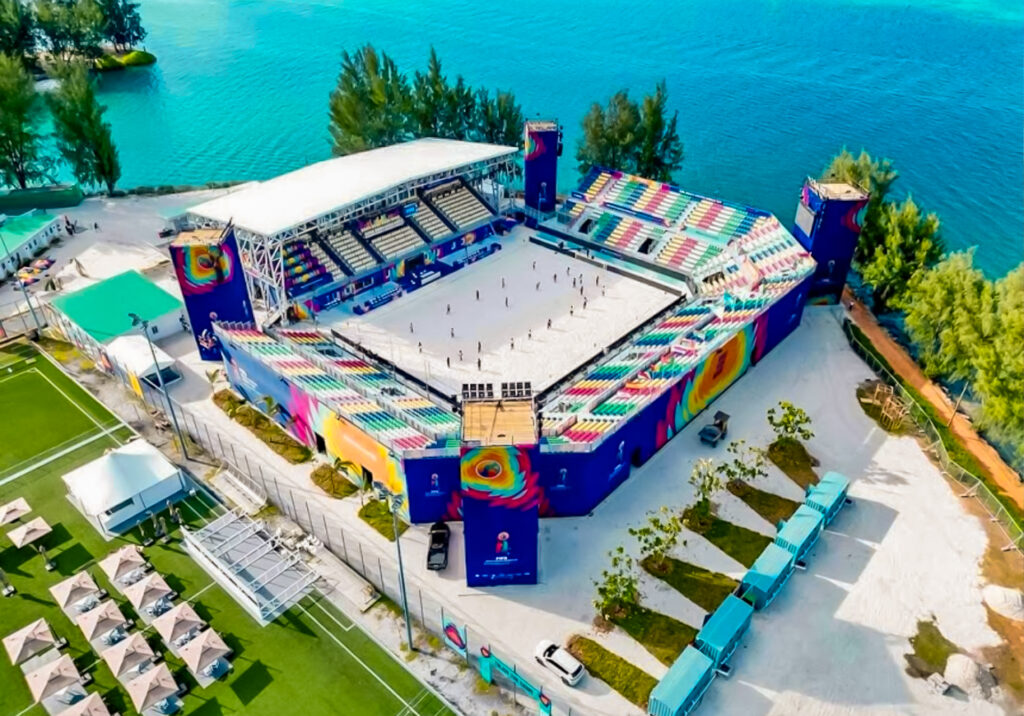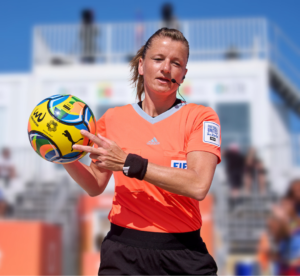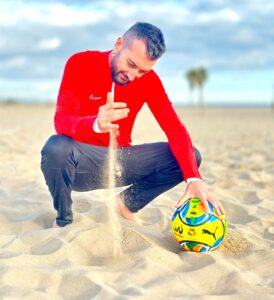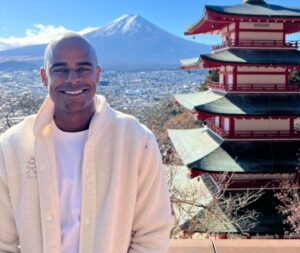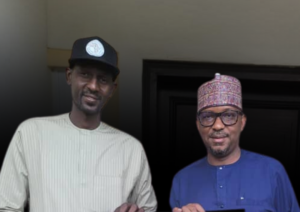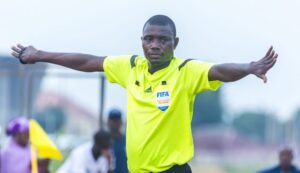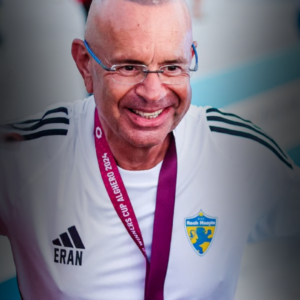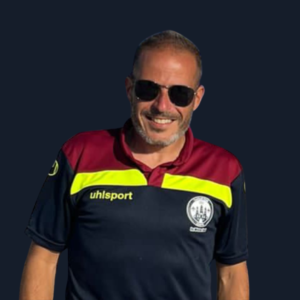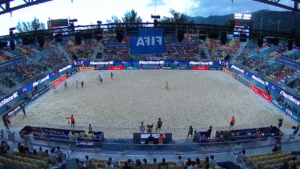At the heart of FIFA Beach Soccer World Cup Seychelles 2025, held from May 1 to 11 was the Paradise Arena, a state-of-the-art stadium in Victoria, Mahé Island, that captivated fans with its innovative design and sustainable approach.
The Stadia facility, built by Dubai-based event setup firm Plan B Group, the arena was a remarkable reuse of the same structure that hosted the 2024 edition in Dubai’s Design District (d3). Here is the story of the Paradise Arena, exploring its journey from Dubai to Seychelles, its sustainable design, and the pivotal role played by Plan B in delivering a world-class experience, including an exclusive interview with Dr. Harmeek Singh; CEO of Plan B Group.
A Stadium Reborn: From Dubai to Seychelles
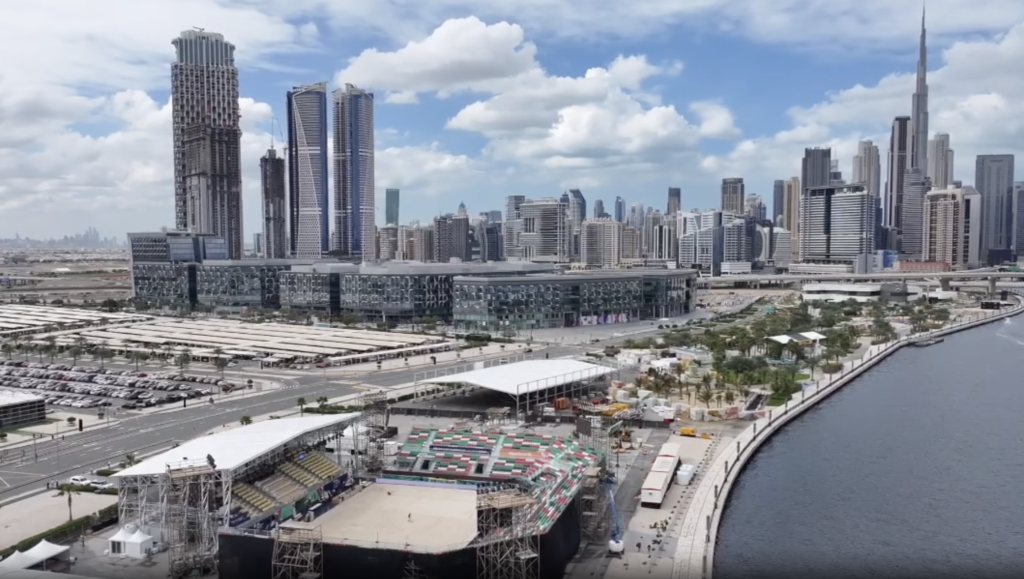
The Paradise Arena’s story began in Dubai, where it was originally constructed for the FIFA Beach Soccer World Cup UAE 2024. Unlike traditional beachfront venues, the 2024 tournament was held inland at Dubai’s Design District, featuring a unique sand area that set it apart. Plan B Group, a creative agency specialising in events management, advertising, and branding, orchestrated the creation of this temporary stadium in just 25 days, a feat that typically takes 60 to 90 days. The arena boasted a 3,500-seat capacity, including a plush VIP area, and a dedicated media centre, creating an unforgettable experience both for fans at the stadium and watching at home.
For the 2025 edition, FIFA and the Seychelles Local Organising Committee embraced sustainability by repurposing the same stadium. After the 2024 tournament concluded, the structure was disassembled, packed into containers, and shipped from Dubai to Victoria Port, arriving on February 26, 2025. The base structure, made of cement and sand sourced from Seychelles’ Assumption Island, was already laid, allowing for a swift reassembly process that took approximately three weeks. This approach not only reduced costs but also minimised environmental impact, aligning with global efforts to make sports events more sustainable.
Jaime Yarza, FIFA’s Director of Tournaments, praised the innovative concept, noting that the Paradise Arena’s 4,000-seat design (expanded slightly for 2025 to accommodate 5,000 spectators) was a revolutionary approach to beach soccer venues. The successful reuse of the stadium underscored Seychelles’ commitment to hosting a world-class event while prioritising eco-conscious practices.
Plan B Group: The Creative Force Behind the Arena
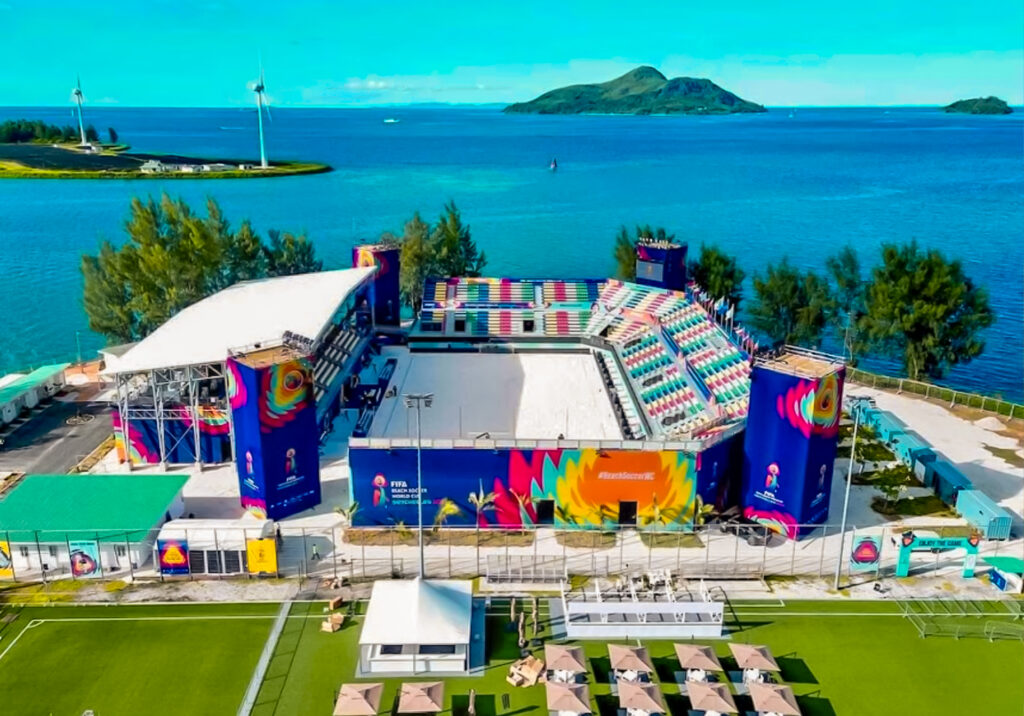
Plan B Group, led by CEO Dr. Harmeek Singh, has earned a reputation for delivering high-profile events with creativity and precision. In Dubai 2024, the agency’s ability to construct a fully functional stadium in record time showcased its logistical prowess and innovative vision. Their 360-degree social media campaign for the 2024 event boosted ticket sales and elevated the tournament’s global visibility, further establishing Dubai as a benchmark for international sporting events.
For the 2025 edition, Plan B’s expertise was instrumental in the stadium’s disassembly, transportation, and reconstruction in Seychelles. The firm collaborated closely with FIFA, the Seychelles government, and Fortem Consulting Engineers from South Africa to ensure the Paradise Arena met the tournament’s rigorous standards. The arena’s design retained its signature elements, advanced broadcast facilities, and fan-friendly amenities. Beyond the matches, Plan B helped create a vibrant Fan Experience area adjacent to the stadium, featuring entertainment, food vendors, kid-friendly activities, and interactive games, fostering a festive atmosphere for spectators. Their work on the FIFA Beach Soccer World Cup showcases their ability to blend creativity, sustainability, and operational excellence, making them a trusted partner for global sporting events.
Exclusive with Harmeek Singh
To uncover the driving force behind Paradise Arena’s success, we sat down with Dr. Harmeek Singh, CEO of Plan B Group, whose leadership turned a bold vision into reality. In an exclusive interview, Dr. Singh shared insights on the project and their innovative approach. Here’s what he had to say:
Q: The Paradise Arena’s journey is a remarkable example of sustainable event planning. What inspired Plan B Group to champion the reuse of the stadium, and what were the biggest logistical challenges in transporting and reconstructing it in Victoria?
Dr. Singh: Inspired by our shared commitment to sustainability, we wanted to demonstrate how Plan B Group took on the ambitious challenge of repurposing the stadium into a lasting asset for Victoria. The project’s complexity was no small feat, yet through strategic planning and a commitment to reuse, we turned a potential teardown into a symbol of circular design thinking by transporting large-scale materials while aligning on deadlines, maintaining structural integrity throughout the move with a contingency plan and replacements, and adapting infrastructure to suit Victoria’s urban and environmental context. With a certified safety-compliant structure designed for Seychelles’ extreme weather conditions, we ensured the stadium stands not just as a venue, but as a statement of what’s possible when sustainability leads innovation.
Q: Building a world-class beach soccer stadium in just 25 days for Dubai 2024 was a feat, and you replicated that efficiency in Seychelles. How did Plan B Group streamline the process to meet such tight timelines while ensuring the arena met FIFA’s high standards?
Dr. Singh: It’s clear that Plan B Group’s ability to deliver under pressure was the result of deliberate, high-impact decisions. By integrating advanced project management techniques, leveraging pre-fabricated materials, and optimising labor deployment, we not only met FIFA’s stringent compliance standards but did so within an exceptionally tight schedule, breaking the world record last year with 25 days for the stadium installation in Dubai and bettering it by completing the Seychelles installation in just 24 days—a milestone marked by an official plaque inaugurated by H.E. Wavel Ramkalawan.
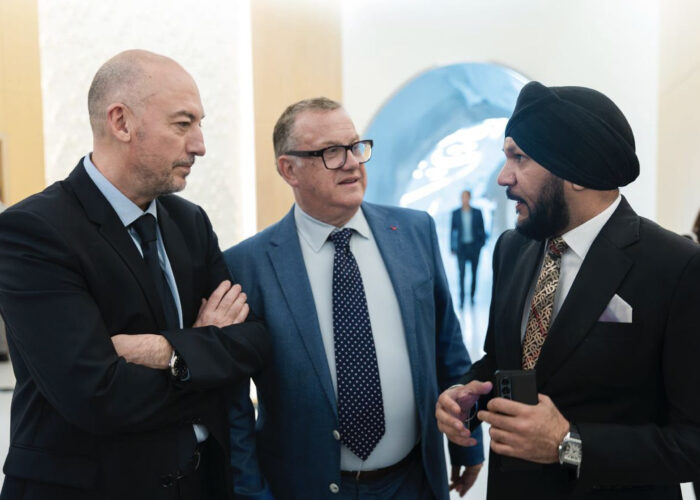 Jaime Yarza, Joan Cusco and Dr Harmeek Singh.
Jaime Yarza, Joan Cusco and Dr Harmeek Singh.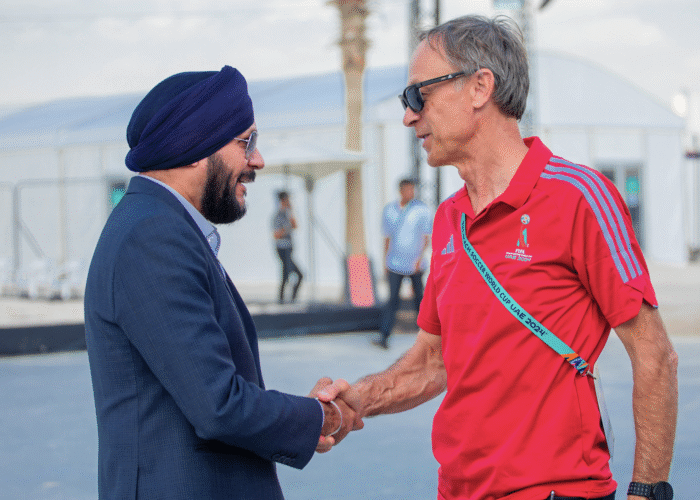 Dr Harmeek Singh with Gabi Renales.
Dr Harmeek Singh with Gabi Renales.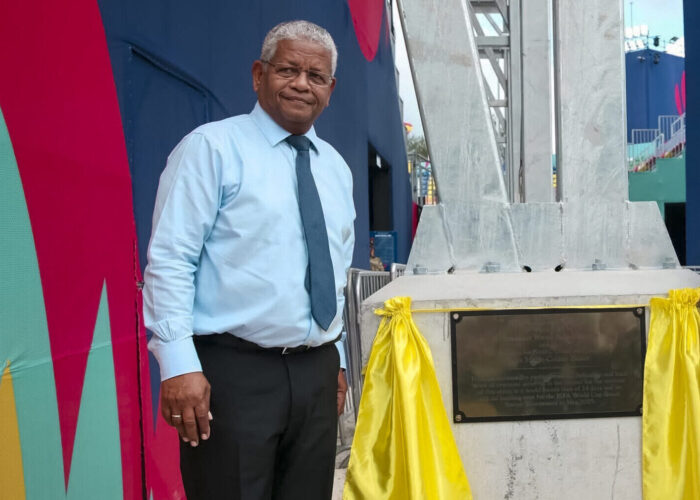 Official plaque inauguration by H.E. Wavel Ramkalawan.
Official plaque inauguration by H.E. Wavel Ramkalawan.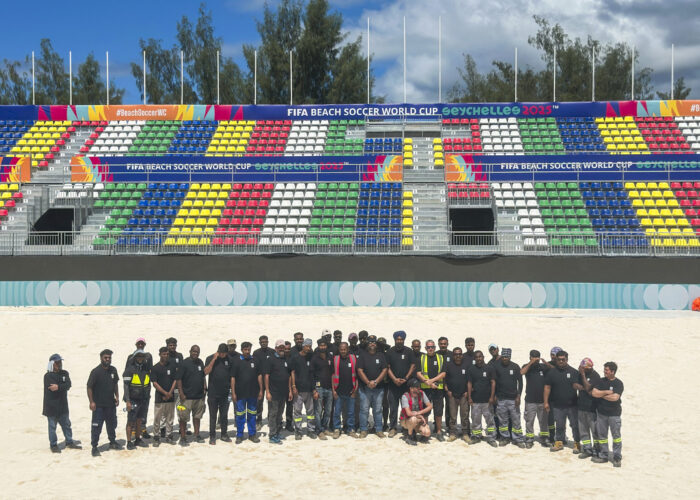 Plan B team
Plan B team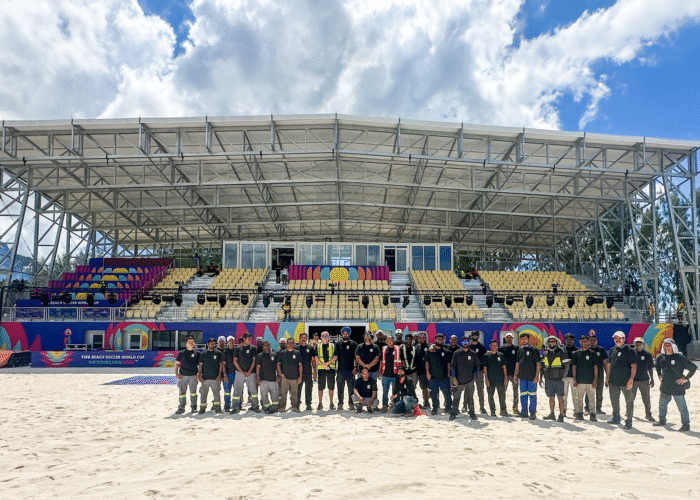 Plan B team
Plan B team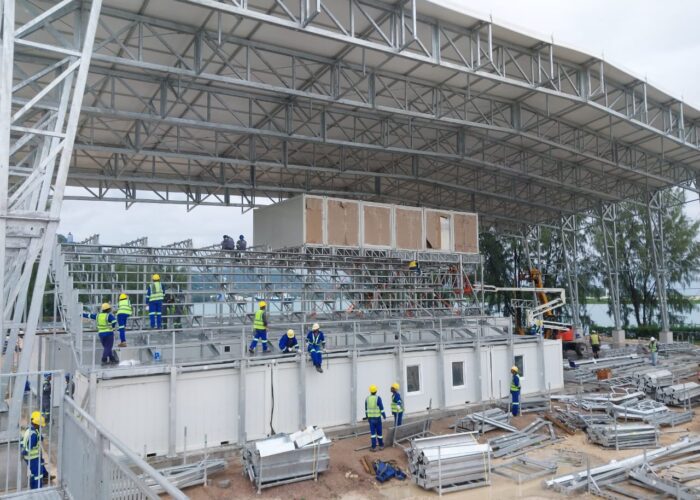 VIP Podium instalation.
VIP Podium instalation.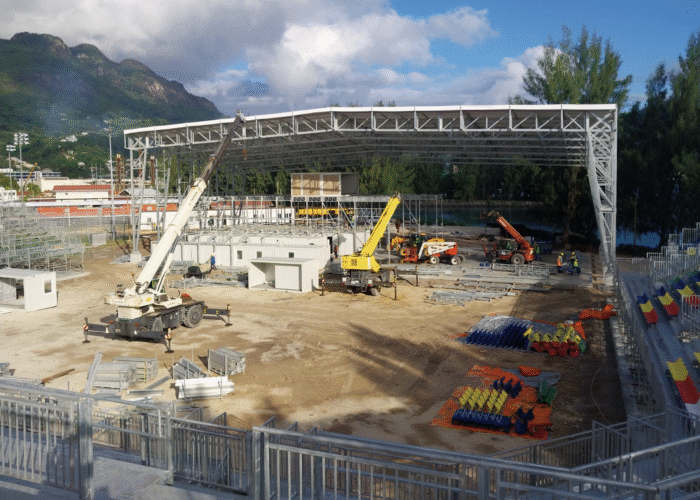 Paradise Arena
Paradise Arena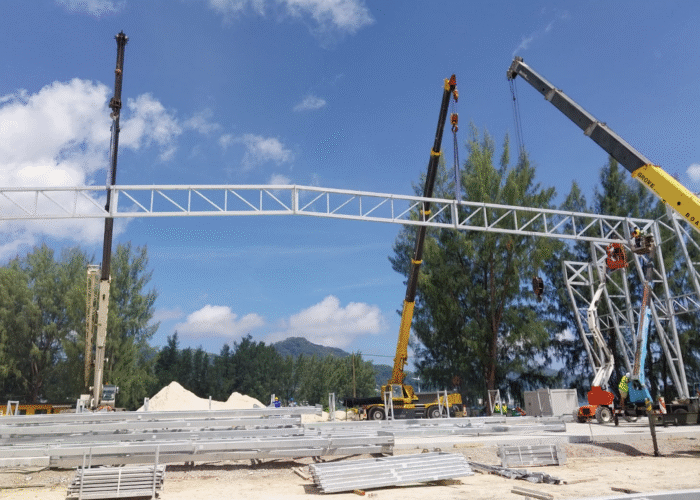
Q: Beach soccer fans love the vibrant atmosphere of tournaments. How did Plan B Group design the Arena and its Fan Experience area to capture the spirit of Seychelles’ culture and a memorable experience?
Dr. Singh: Reflecting on the vision behind the Paradise Arena, we wanted to highlight how Plan B Group has brought Seychelles’ vibrant spirit to life through thoughtful design and cultural storytelling, all while adhering to FIFA guidelines. By weaving in local styles, lush tropical landscaping, and a vivid colour palette, the Arena doesn’t just host events, it becomes an experience. The Fan Experience area immerses visitors into the island’s heritage through original Seychellois art installations, live music featuring local rhythms, and authentic island cuisine curated by regional chefs, an approach that has not only elevated the venue’s aesthetic appeal but also created a deeper emotional connection for international audiences, turning the event into a cultural journey.
Q: What role do you see innovative stadium designs like the Paradise Arena playing in growing beach soccer’s global popularity, especially in emerging markets like Africa?
Dr. Singh: As we explore new frontiers for beach soccer, the concept of innovative stadiums like the Paradise Arena stands out, not just as architectural marvels, but as catalysts for a deeper transformation. These structures can redefine the fan experience, attract high-value sponsorships, and carve out a distinctive identity for the sport, anywhere, including emerging markets like Africa. Imagine a venue that embodies sustainability, cultural relevance, and community spirit, a space that doesn’t just host games but weaves together nations through sport. Plan B’s commitment to innovation and environmental consciousness offers a powerful platform to position beach soccer and all sports as more than an activity, but a unifying force in a borderless world. To move this vision forward, we are working for our refined version to align on a strategy that connects infrastructure, branding, and social impact on regional and global platforms.
Q: What new strategies did you implement for Seychelles 2025 to engage fans and elevate the tournament’s digital presence, particularly for a first-time host like Seychelles?
Dr. Singh: Our Seychelles 2025 strategy was clear. Integrated approach of localised content, immersive virtual experiences, influencer partnerships, and grassroots engagement has laid a strong foundation for long-term impact, not only elevating Seychelles on the global sports tourism map but also serving as a benchmark for how stadium infrastructure can evolve into a legacy asset. By opening the venue to post-sport events like music festivals, cultural showcases, and regional conferences, we’re unlocking new tourism segments and driving economic uplift, with localised storytelling resonating with both international and domestic audiences, virtual experiences extending our reach beyond physical attendance, influencer collaborations creating authentic momentum online, and government alignment helping embed our initiatives into national tourism goals.
Dr. Singh’s insights reveal the meticulous planning and passion that made Paradise Arena a global benchmark for sustainable sports venues, setting the stage for Seychelles’ unforgettable debut on the world stage.
Sustainability and Community Impact
The decision to reuse the Dubai stadium for Seychelles 2025 was a bold step toward sustainability in sports, as Dr. Singh emphasised in his vision for circular design. By transporting and reconstructing the existing structure, FIFA and Plan B reduced the need for new materials and minimised construction waste. The cement and sand base, sourced locally from Assumption Island, further lowered the tournament’s carbon footprint. This eco-friendly approach set a precedent for future FIFA events, demonstrating that high-profile tournaments can prioritise environmental responsibility without compromising quality.
The Paradise Arena also became a symbol of national pride for Seychelles. As the first FIFA tournament hosted by the island nation, the event showcased its stunning beaches, vibrant culture, and biodiversity. The tournament’s mascot, a football-loving turtle named Tikay, and the official song “Boom SE SE” by Seychellois artists Elijah and Taniah, celebrated the nation’s culture and heritage. Plan B’s Fan Experience area, with its local art and cuisine, and community initiatives, such as beach soccer clinics for local youth, helped engage the community and promote the sport’s growth in Seychelles. Over 40 children and coaches participated in a promotional event at Beau Vallon Beach, attended by President Wavel Ramkalawan, highlighting the tournament’s role in inspiring the next generation.
A Historic Tournament in Paradise
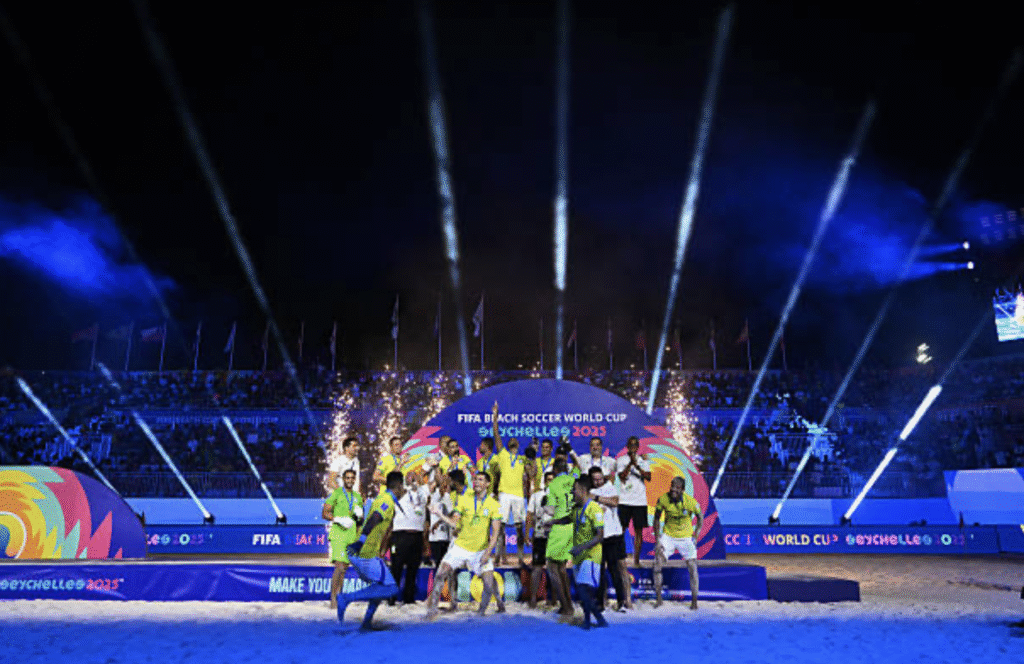
The FIFA Beach Soccer World Cup Seychelles 2025 was a resounding success, with Brazil defending their title by defeating Belarus 4–3 in a thrilling final. The Paradise Arena hosted 24 matches, showcasing 16 teams from six FIFA confederations, including debutants Chile, Guatemala, Mauritania, and hosts Seychelles.
Looking Ahead
As Seychelles basks in the glow of its historic hosting, the legacy of the Paradise Arena will inspire future tournaments to blend world-class entertainment with a commitment to the planet. And for those inspired by the thrilling action of the FIFA Beach Soccer World Cup Seychelles 2025, the Paradise Arena remains a must-visit destination. Now set to evolve into a world-class multi-purpose facility, the arena continues to embody the island’s vibrant culture and passion for global sport. Whether you’re planning your next getaway or simply wish to experience the charm of Seychelles, visit Seychelles’ tourism portal for more on what this island paradise has to offer. The FIFA Beach Soccer World Cup Seychelles 2025 has proven that paradise can be both a stage for global sport and a beacon of sustainability.
Source Note: This article references information from FIFA’s official website, Inside Seychelles, Wikipedia, VoyagesAfriq, African News Agency, Campaign Middle East, and Plan B Group. For the most up-to-date information, readers are encouraged to visit FIFA or contact Plan B Group directly.
ALSO READ: Seychelles 2025: Africa Welcomes the Best of Beach Soccer

